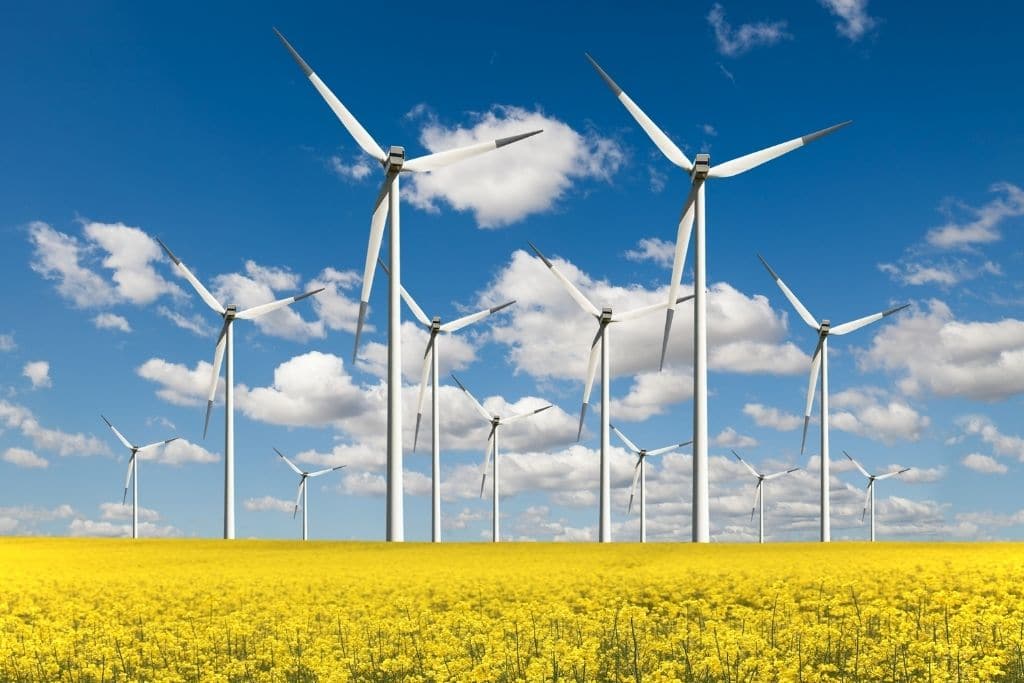Benefits of Wind Energy
Wind energy is a renewable source of power that has gained significant attention in recent years. In this article, we will explore the numerous benefits of wind energy and how it can contribute to a sustainable future.
Reduced Carbon Emissions
One of the primary advantages of wind energy is its ability to generate electricity without producing harmful greenhouse gas emissions. Unlike fossil fuels, which release carbon dioxide and other pollutants when burned, wind turbines harness the power of the wind to generate clean and renewable energy. By utilizing wind energy, we can significantly reduce our carbon footprint and mitigate the impact of climate change.
Energy Independence
Investing in wind energy helps to promote energy independence. Unlike traditional energy sources that rely on finite fossil fuels, wind energy is abundant and freely available. By harnessing the power of the wind, we can reduce our dependence on foreign oil and create a more secure and sustainable energy future.
Job Creation
The wind energy sector has the potential to create a substantial number of jobs. From manufacturing and installation to maintenance and operation, the development of wind farms requires a skilled workforce. By investing in wind energy, we can stimulate economic growth, create employment opportunities, and drive innovation in the renewable energy industry.
Cost-Effectiveness
Wind energy has become increasingly cost-effective in recent years. With advancements in technology and economies of scale, the cost of wind power generation has significantly decreased. This makes wind energy a competitive option for electricity generation, especially when compared to traditional fossil fuel-based power plants. By embracing wind energy, we can reduce energy costs and improve the affordability of electricity for consumers.
Environmental Benefits
Aside from reducing carbon emissions, wind energy offers several other environmental benefits. Wind turbines have a small physical footprint and can be installed on existing agricultural or industrial land, minimizing the need for additional infrastructure development. Furthermore, wind energy does not consume water for power generation, unlike many other energy sources. This helps to conserve water resources, especially in areas prone to droughts.
Community Support and Engagement
Wind energy projects often involve close collaboration with local communities. Developers engage in extensive consultations and provide opportunities for community input. This approach ensures that the benefits of wind energy are shared among all stakeholders. Additionally, wind farms can provide financial benefits to landowners through lease agreements, offering a reliable source of income for rural communities.

Wind energy offers numerous benefits that make it a valuable contributor to our energy mix. From reducing carbon emissions and promoting energy independence to creating jobs and driving economic growth, wind energy has the potential to transform our energy landscape. By embracing wind power, we can pave the way towards a sustainable and cleaner future for generations to come.
Frequently Asked Questions about the Benefits of Wind Energy
1. How does wind energy benefit the environment?
Wind energy is a clean and renewable source of power, meaning it does not produce harmful greenhouse gas emissions or air pollutants that contribute to climate change or air pollution.
2. What are the economic benefits of wind energy?
Wind energy creates jobs in the manufacturing, installation, and maintenance of wind turbines. It also reduces dependence on imported fossil fuels, leading to energy independence and cost savings.
3. Does wind energy help in reducing carbon emissions?
Yes, wind energy helps in reducing carbon emissions. By displacing fossil fuel-based electricity generation, wind power helps to mitigate climate change by reducing greenhouse gas emissions.
4. How does wind energy benefit local communities?
Wind farms provide economic opportunities for local communities through job creation, land lease payments, and increased tax revenues. They also enhance energy security and reduce dependence on external energy sources.
5. Can wind energy help in rural development?
Yes, wind energy can contribute to rural development. It brings economic investments, job opportunities, and additional income for landowners hosting wind turbines, thus supporting the growth and development of rural areas.
6. Are there any health benefits associated with wind energy?
Wind energy does not produce harmful air pollutants or emissions that can negatively impact human health. Unlike fossil fuel power plants, wind turbines do not release pollutants such as sulfur dioxide, nitrogen oxides, or particulate matter.
7. How does wind energy help in reducing water consumption?
Wind energy requires minimal water usage compared to conventional power plants. Unlike coal, gas, or nuclear power plants, wind turbines do not require water for cooling purposes, helping to conserve precious water resources.
8. Can wind energy help in diversifying the energy mix?
Yes, wind energy plays a crucial role in diversifying the energy mix. By adding wind power to the grid, countries can reduce their reliance on a single energy source and enhance energy security, ensuring a more stable and resilient power supply.
9. Does wind energy benefit rural farmers?
Wind energy can provide an additional source of income for rural farmers by leasing their land for wind turbine installation. It offers a stable and long-term revenue stream, helping farmers diversify their income sources.
10. Are there any aesthetic benefits associated with wind energy?
Many people find wind turbines visually appealing and consider them as symbols of clean energy and sustainability. Wind farms can also enhance the beauty of landscapes and contribute to tourism, attracting visitors interested in renewable energy.




